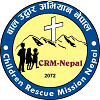A Few Words About CRM Nepal
CRM Nepal is committed to provide support for the poorest of the poor children to go to school so the children will escape the horror of human trafficking and extreme poverty. Proving support we believe will be very vital for children to escape bondage of slavery and abuse. We believe education is the key for children to be able be successful. Lack of education and lack of awareness is a main component that so many children are sold into sex slavery and bond slave labor.
Our passion is to rescue at-risk children in Nepal by breaking the cycles of poverty and trafficking through compassionate services.
Nepal is a source, transit, and destination country for men, women, and children subjected to forced labor and sex trafficking. Nepali women and girls are subjected to sex trafficking in Nepal, India, the Middle East, Asia, and Sub-Saharan Africa. Nepali men, women, and children are subjected to forced labor in Nepal, India, the Middle East, and Asia in construction, factories, mines, domestic work, begging, and the adult entertainment industry. Manpower agencies or individual employment brokers who engage in fraudulent recruitment practices and impose high fees may facilitate forced labor. Unregistered migrants—including the large number of Nepalis who travel through India or rely on unregistered recruiting agents—are particularly vulnerable to forced labor and sex trafficking. Some Nepali women who agree to arranged marriages through Nepali companies to men in China and South Korea may experience fraud and be vulnerable to domestic servitude in which their freedom of movement is restricted. Some migrants from Bangladesh, Sri Lanka, and possibly other countries transit Nepal en route to employment in the Middle East, using potentially falsified Nepali travel documents, and may be subjected to human trafficking. Some government officials reportedly accept bribes to include false information in Nepali identity documents or provide fraudulent documents to prospective labor migrants, a tactic used by unscrupulous recruiters to evade recruitment regulations. Within Nepal, bonded labor exists in agriculture, brick kilns, the stone-breaking industry, and domestic work. Sex trafficking of Nepali women and girls increasingly takes place in private apartments, rented rooms, guest houses, and restaurants. Nepali and Indian children are subjected to forced labor in the country, especially in domestic work, brick kilns, and the embroidered textile, or industry. Under false promises of education and work opportunities, Nepali parents give their children to brokers who instead take them to frequently unregistered children’s homes in urban locations, where they are forced to pretend to be orphans to garner donations from tourists and volunteers; some of the children are also forced to beg on the street. Many Nepalis, including children, whose home or livelihood was destroyed by the 2015 earthquakes continue to be vulnerable to trafficking. Traffickers increasingly utilize social media and mobile technologies to lure and deceive their victims.

